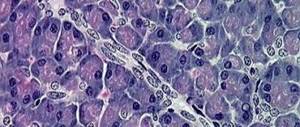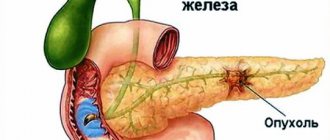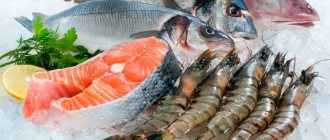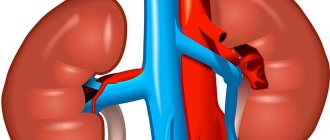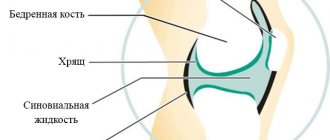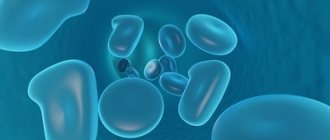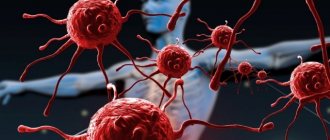Nutrition in diseases of the pancreas is the main factor contributing to the preservation of its functions. The mechanism of food digestion and the participation of the gland may not be familiar to everyone.
But almost everyone knows about the terrible disease diabetes. Therefore, acquaintance with the pancreas often begins with the hormone it produces, insulin. With a more specific deepening of knowledge, an understanding of its importance in the body comes. For many diseases, a diet is recommended, but nutrition related to diseases of the pancreas is especially important due to the specifics of its functioning.
Pancreatitis and its signs
When we eat right, the amount of enzymes secreted is normal.
If there is a malnutrition, smoking, or alcohol abuse, the gland becomes inflamed. Enzymes, lingering in its ducts, begin to destroy the organ itself and, entering the blood, cause intoxication. This unhealthy condition of the pancreas is called pancreatitis. Symptoms:
- pain. The appearance of intense pain that causes cutting sensations. If medical assistance is not provided promptly and pain is not relieved, a person may experience painful shock. Depending on the affected area, it may hurt in the hypochondrium on the right or left. If the entire organ is inflamed, then the pain has a girdling character;
- complexion changes. First, the patient turns pale, and then the skin acquires a grayish tint;
- a rash appears on the skin;
- bowel dysfunction (diarrhea or constipation);
- the appearance of nausea, vomiting;
- severe bloating;
- the heart rate increases and shortness of breath may occur;
- Blue spots may appear in the navel and lower back area. This indicates that blood from the inflamed gland has penetrated the skin of the abdomen;
- temperature increase;
- low or high pressure.
Forms of pancreatitis and diet
Pancreatitis comes in different types. They are classified according to the causes of occurrence, the degree of loss of function by the gland, and the possibility of restoring the damaged organ. In a simplified version of the classification, three types of inflammation are considered.
Classification of pancreatitis
- spicy. Inflammation of the gland with hemorrhages and necrotic processes occurs due to the fact that the organ begins to digest itself with pancreatic enzymes;
- chronic. With chronic pancreatitis, the pancreas loses the ability to produce digestive enzymes and hormones;
- reactive. The inflammation is caused by spasm of the pancreatic duct.
How does the disease manifest itself?
The pancreas reacts to various unfavorable factors and becomes inflamed. The causes of pancreatitis can be different:
- Diseases accompanied by infections. This list includes influenza, sore throat, acute respiratory infections, etc.
- Inflammation of accompanying organs (gastritis, cholecystitis).
- Violation of nutrition and its regime.
- Taking antibiotics also negatively affects the body and causes inflammation of the pancreas.
- Injuries to the abdominal area.
- Stress.
- Bad habits - drinking alcohol.
In men, pancreatitis can often occur due to alcohol abuse. They may also develop pancreatic disease due to poor nutrition, overeating and eating large amounts of fatty and spicy foods (fast food). According to statistics, men are less likely to seek medical help from doctors during an exacerbation of the disease.
In women, the cause of the disease is often hormonal changes: during pregnancy, menopause, or while taking hormonal medications. Many people, wanting to lose weight, use diets that negatively affect the functioning of the pancreas.
In small children, it is more difficult to diagnose the disease, since they cannot indicate the location and nature of the pain. Often the deterioration of their general condition is accompanied by screaming and crying, which are also characteristic of other diseases.
During pregnancy
Pancreatic disease during pregnancy is a very common occurrence. This is due to the fact that the load on the body increases significantly, food is digested more slowly, resulting in dysbiosis in the intestines. Taking vitamins during pregnancy also leads to inflammation of the organ.
In this case, treatment involves hospitalization in a hospital department . This is due to the need to administer medications intravenously through a drip. Therapy for pregnant women prohibits self-administration of any medications without the consent of a doctor.
Nutrition for inflammation of the pancreas
One of the main conditions for successful and effective treatment is adherence to a special diet. It is important to determine in what form the patient’s disease occurs in order to choose the right diet.
Diet for acute inflammation of the pancreas
During an exacerbation, doctors, as a rule, deprive the patient of food for two to three days. As the condition worsens, fasting is prolonged. Nutrients are administered through a special tube into a vein. You are allowed to drink only rosehip decoction, still mineral water and weak tea.
As soon as the patient gets better, he is prescribed the first option of diet No. 5.
Diet features:
- low calorie content;
- eating small meals five to six times a day;
- additional snacks are prohibited;
- exclusion of coarse fiber and products that stimulate the secretion of the digestive glands;
- drink more fluids, especially alkaline drinks.
Can be used:
- decoctions of chamomile, rosehip;
- pureed compotes from dried fruits or fresh fruits;
- dairy products, steamed puddings, fresh curd spreads;
- soft-boiled eggs, steamed omelet;
- steamed puddings and mashed potatoes, zucchini, carrots or cauliflower;
- fish and lean meat, prepared in the form of steamed cutlets, quenelles or soufflés;
- slimy soups with light vegetable broth or water with the addition of cereals (except millet);
- wheat bread crackers (no more than 50 grams);
- butter (add to food).
Do not use:
- various spices and spices;
- confectionery, baked goods;
- ice cream and chocolate;
- alcohol;
- canned food;
- spicy, fried, smoked, fatty foods;
- sausages;
- raw fruits and vegetables;
- strong mushroom and vegetable broths;
- radish, onion, turnip, radish, lettuce, rutabaga, sorrel, white cabbage;
- meat and fish of fatty varieties.
Sample menu
- Breakfast steamed protein omelet
- buckwheat porridge on water
- tea
- steamed cottage cheese soufflé
- slimy soup with rice and breadcrumbs
- dried apricot soufflé
- boiled meat soufflé
- rosehip decoction
Medical nutrition
Diet for pancreatic disease is not a death sentence. Currently, new technologies have provided families with household appliances that will help them cope with the preparation of dietary dishes. Among such equipment are multicookers, blenders, and presses.
There is no need to rub the cooked porridge through a sieve, as was before, or make a homemade device for steaming. In those days, dieting was problematic, and not everyone followed it. Even if a person is healthy, a gentle diet will not harm him.
For any disease, if the doctor insists, you need to follow a certain diet. For different diseases, diets and food selection are different. Depending on the stage of the disease, a dietary plan is prescribed. In addition to being easy for the body, it must also be optimal, i.e. saturate the body with the necessary components, carbohydrates, fats, vitamins, amino acids, macro and microelements, minerals, proteins, and so on.
Therefore, it is important to understand the composition of products, what elements and how many of them are contained in a quantitative ratio. If, for example, a diet for pancreatic pancreatitis requires eliminating foods containing heavy fiber from the menu, then you need to know the definition of fiber and the list of products containing it.
Diet for chronic inflammation of the pancreas
The diet for chronic pancreatitis is a little more varied than for exacerbation - how to eat with inflammation of the pancreas. The patient, despite the improvement in his condition, must continue to carefully monitor his diet and not overload the pancreas with harmful foods, so as not to provoke a re-exacerbation. When pancreatic inflammation is in remission, doctors recommend adhering to the second option of diet No. 5.
Diet features:
- eat food only baked, stewed, boiled and steamed;
- exclude fried foods;
- food temperature should be from 15 to 60 degrees;
- distribute food into 5-6 meals;
- gradual expansion of the diet (if you have doubts about the product, consult your doctor);
- limit consumption of animal fats;
- consume no more than 10 grams of salt and 30 grams of sugar per day.
Can be used:
- unhealthy cookies;
- dried second-grade wheat bread;
- slimy or pureed vegetable soups with the addition of cereals (except millet);
- steamed or boiled lean meat and fish;
- semi-viscous pureed porridge with water or with a small addition of milk;
- pasta, vermicelli;
- unleavened cottage cheese (homemade is best), curd pudding; non-acidic kefir, you can add cream or sour cream to dishes;
- baked or boiled pureed vegetables: carrots, cauliflower, pumpkin, potatoes, green peas, beets, beans;
- butter, refined sunflower or olive oil (add to food);
- apples of non-acidic varieties, pureed or baked without peel;
- weak teas, decoctions of rosehip, chamomile, black currant.
Do not use:
- legumes;
- confectionery, baked goods;
- strong mushroom and vegetable broths;
- alcohol and carbonated drinks;
- canned food;
- spicy, fried, smoked, fatty foods;
- sausages;
- raw fruits and vegetables;
- mushrooms;
- radish, onion, turnip, radish, lettuce, rutabaga, sorrel, white cabbage;
- meat and fish of fatty varieties;
- strong tea, coffee, cocoa;
- chocolate, ice cream.
Sample menu
- Breakfast mashed potatoes
- boiled meat
- tea with milk
- low-fat cottage cheese, baked apple
- pureed vegetable soup with barley
- steamed egg white omelette
- baked chicken meat
- kefir
What can you eat during an exacerbation?
Following a diet for inflammation of the pancreas is an important aspect at any stage of the disease. However, during the period of exacerbation of the disease, the patient feels very bad, because he is tormented by continuous vomiting, diarrhea, and bloating, so he will not be able to think about food. Overeating during this period is generally contraindicated - only a strict diet!
At the time of exacerbation of the disease, a person can only drink alkaline mineral water, this makes his well-being a little easier. And if you drink it heated, then mineral water also has a healing effect. In addition, it is allowed to drink herbal decoctions or herbal teas. The attending physician for pancreatitis can suggest, in accordance with the patient’s tests, what is best for him for the treatment process.
Any food entering the body during an acute inflammatory process will cause an increase in symptoms, provoking severe pain, from which the patient can lose consciousness, fall into a coma, and even die. But there is no need to be afraid that exhaustion or weakness of strength will occur, since the patient will receive nutrition using catheters through special systems. A solution enriched with minerals, vitamins and micronutrients is injected into the body, balance is maintained in the body and the strength for physical activity and accelerated recovery appears.
Diet for reactive inflammation of the pancreas: dos and don’ts
The diet for reactive pancreatitis is not very different from previous diets, since the basis of nutrition for all types of pancreatic inflammation is diet No. 5. The main goal for reactive pancreatitis is strict adherence to a diet that will ensure minimal energy consumption of the gland for digesting food.
Diet features:
- frequent split meals five to six times a day;
- give preference to warm pureed dishes;
- exclusion of fats;
- limiting carbohydrates to a minimum;
- eat more proteins.
Can be used:
- yesterday's wholemeal bread, crackers;
- soups with vegetable or chicken broth with the addition of cereals, pasta, boiled minced meat;
- meat and fish (preferably river) of low-fat varieties;
- eggs in the form of steam omelettes;
- dairy products;
- butter, sunflower, olive oil (add a small amount to the dish);
- vegetables in the form of puree or boiled;
- cereals (buckwheat, oatmeal, rice), pasta;
- baked non-sour apples without peel;
- rosehip decoctions, still alkaline mineral water, weak tea, compotes, jelly, mousse;
- dry biscuits.
Do not use:
- raw vegetables and fruits;
- products containing coarse fiber;
- rich fish or meat broths;
- coffee, cocoa, strong tea;
- sour fruit juice, carbonated drinks, kvass;
- spicy, fried, smoked, fatty foods;
- alcohol;
- chocolate, ice cream;
- mushrooms;
- sour fruit juice, carbonated drinks;
- milk;
- honey;
- confectionery.
Sample menu
- Breakfast mashed potatoes
- boiled chicken
- weak tea with crackers
- kefir
- vegetable soup with rice
- applesauce
- baked chicken meat
- curdled milk

